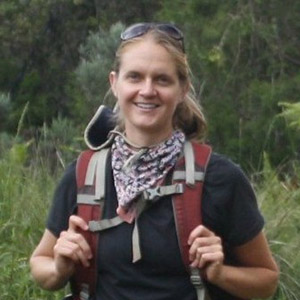Lauren Withey
Ph.D. AlumView all Alumni, Graduate Students

Contact
Email: lwithey@berkeley.edu
Office: 210 Wellman
Education
B.A. Bowdoin College, 2006
Research Interests
Many geographic scales might be used to design and analyze conservation actions around the world. We know that the fundamental drivers of forest conversion and elephant poaching, for instance, are often thousands of miles away from the fateful action. Meanwhile, resources invested in conservation commonly come from equally distant lands. Recognizing that the outcomes of these efforts are ultimately determined very locally, I am interested in how conservation plans translate across scales to communities, and even individuals.
This assessment is especially of interest in an era in which a new frame – ecosystem services – is increasingly driving the design of conservation programs. In this frame, the value of the “services” that “nature” provides to humans are explicitly recognized and accounted for in various ways, including through programs in which those who benefit from these services pay those charged with keeping them intact.
I therefore study how conservation projects built around ecosystem services affect local actors, particularly by mediating their access to natural resources and shaping their resource management institutions. My work focuses on Colombia, where I am using mixed methods to study these questions in communities based in tropical forest that was recently integrated into a REDD+ program.*
I hope that the results of this investigation will contribute to a fuller understanding of the social consequences of ecosystem services-based conservation and more just and enduring conservation efforts globally.
Before coming to Berkeley, I worked at the World Resources Institute in Washington, DC, where I conducted research on community-based natural resource management and climate adaptation.
*REDD+ (Reduced Emissions from Deforestation and Degradation “Plus”) is an international ecosystem services conservation program. It is intended to increase carbon sequestration – and thereby reduce climate forcing – by paying those stewarding land to take actions to improve the sequestration value of that land.